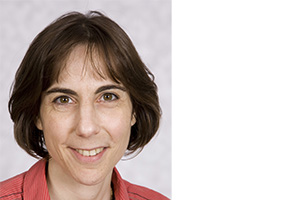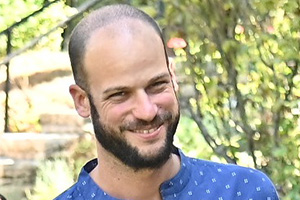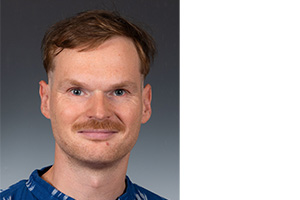Keynote Speakers
The different faces of addiction: understanding a complex disorder from different perspectives
Addiction to drugs is an illness that causes a lot of harm to everyone involved, but the pain and damage it causes does not seem to deter users from continuing to consume drugs. Many chronic drug users report that even though they don’t enjoy taking drugs as much as they used to, they still continue doing it. Though this may seem paradoxical at first glance, such maladaptive behaviour could be explained by changes in brain regulatory control systems. The two psychological constructs, impulsivity, and compulsivity, characterise failures of regulatory control that lead to undesirable consequences. Although both constructs are hallmarks of drug addiction, they are not specific to addiction, but there is now growing evidence suggesting that both may facilitate the development of addiction and exacerbate its course. In my talk, I will tackle questions frequently brought up in this context, for example why it is that some people get addicted to drugs and others don’t. Or why it is so particularly difficult to change behaviour in people who are addicted to drugs. Furthermore, I will highlight some of the less well-known effects of stimulant drugs, which may also contribute to the persistence of stimulant drug addiction. Cognitive neuroscience is a powerful tool to not only understand the causes of behaviour spiralling out of control, but also to identify pathways for getting it back under control. Ultimately, science provides a real opportunity to make a difference to the lives of people affected by debilitating disorders such as drug addiction.
Impact of drugs on people and planet?
World drug matters affect different people in different ways. There is a large Global North and South disparity on accessibility of controlled medications for pain relief and care and they are communities on the global South that suffer most of the negative consequences of global drug production in terms of environmental degradation, violence, socio-economic development, and human rights. Stigma and fragile environments place certain sub-population groups more at risk than others. For example, men use drugs more than women, but globally women have a larger treatment gap; homeless people are particularly vulnerable to HIV outbreaks among people who inject drugs. While the health harm of drugs remains arguably contained when compared with alcohol and tobacco, there counties to be an increase in the number of people who use drug, those with drug use disorders and new data on people who inject drugs have made us to revisit the global number of PWID to a 18% higher level. Markets such as cocaine and synthetic drugs continue to show signs of expansion.
While the health harm of drugs has been widely documented, the environmental impact of drugs has only recently started to be studied. Drugs are not the main factors that affect the global environmental agenda, but they have a significant impact on some local communities and at individual level. The drug supply chains have a large carbon footprint impact for quantity produced. Illegal drug cultivation destroys ecosystems and directly and indirectly trigger deforestation. The illegal drug economy opens up the territory in fragile ecosystems, such as the Amazon Basin, to organized criminal groups that exploit the territory through land-grabbing, illegal logging, illegal mining, trafficking in wildlife and other crimes that affect the environment. These drug trafficking organizations are not just exacerbating deforestation but are also accelerating convergent crime ranging from corruption, tax and financial crimes, to homicide, assault, sexual violence, exploitation of workers and minors, and the victimization of those defending the environment and Indigenous Peoples. Manufacture of synthetic drugs has also important implications for the soil, water, and air, as well as indirect effects on organisms, animals, and the food chain of local communities.
Treatment of Cannabis Use Disorders in the European Union
Following Caffeine, Nicotine and alcohol, cannabis is the most commonly used psychoactive substance globally, with more than 200 million estimated annual users, worldwide. Among lifetime cannabis users, between 8%-22% will develop Cannabis Use Disorder (CUD). In the European Union (E.U), treatment demand for CUD has increased in the past decade in almost all countries and CUD is currently the first most common reason for first-time drug-related treatment admission.
In the first part of my talk, I will present a current mapping of Cannabis-Specific Treatment (CST) availability in Europe, based on data provided by national representatives ("Focal Points") of the European Monitoring Centre for Drugs and Drug Addiction (EMCDDA). Data regarding CST availability, type of treatment, national coverage and expected implementation of additional CST was available from 30 European countries. Results indicate that European countries devote considerable resources to treating CUD, via general substance use treatment tailored to the individual needs of the treatment seeking cannabis user or cannabis-specific interventions in addition to general substance use treatment. Emerging online CST programs are available in some European countries, allowing higher treatment availability and coverage.
The second part of my presentation will review the current knowledge on predictors of effective treatment for CUD. I will focus on treatment moderators (i.e., patient-related characteristics which predict his/her odds to benefit from treatment) and mediators (i.e., treatment-related factors associated with the processes or mechanisms through which patients benefit from therapy) which were identified in empirically evaluated studies using defined, cannabis-related outcome measures.
Substance Use Disorders among Refugees: A Systematic Review and a Qualitative Study among Arabic-speaking Refugees in Germany
Refugees are at high risk of mental health problems due to their pre-migration experiences, war, and post-migration challenges. Although recent studies also shed light on substance use disorders (SUDs) as another risk to refugees’ mental health, our understanding of SUDs among diverse ethnic refugee groups is still limited. This plenary aims at comprehending the topic from a holistic overview as perceived by practitioners and refugees from different countries over a decade. The data presented in this plenary is based on two studies: (1) a systematic review of qualitative research, and (2) an in-depth qualitative study conducted among Arabic-speaking refugees in Germany. The evidence synthesis of several studies conducted in host countries, such as the U.S., Australia, and Germany, revealed that refugees are at considerable susceptibility to SUDs, and their social insecurities complicate the harmful consequences of substance use. Refugees are struggling with complex barriers to treatment in many host countries, and improving effective access to treatment, interventions and prevention approaches is strongly needed. Although refugees are often treated as a universal group, their perspectives vary based on their diverse sociocultural backgrounds; understanding SUDs (a sociocultural and legally sensitive topic) is a significant challenge in host countries. Further in-depth studies are required to inform practitioners and policymakers in the clinical and social institutions.
Cannabis Legalisierung in Deutschland – ein gewagtes Experiment?
Die geplante Legalisierung von Cannabis zu Genusszwecken wird von der deutschen Öffentlichkeit kritisch und mit großer Aufmerksamkeit begleitet. Auch die Fachöffentlichkeit widmet sich diesem Thema mit großem Interesse, wie durch eine Vielzahl von Positionspapieren deutlich wird. Mit dem durch die Regierung vorgelegten 2-Säulen-Modell wird nun erkennbar, dass ein vollumfänglich regulierter, legaler Cannabismarkt in Deutschland vorerst nicht Realität wird. Während der Besitz geringer Mengen sowie der Anbau von Cannabis durch Privatpersonen oder Vereine noch dieses Jahr legalisiert werden könnten, wird es wohl noch einige Zeit dauern, bis der kommerzielle Vertrieb und Handel in regional begrenzten Modellprojekten umgesetzt werden kann.
In diesem Vortrag gehe ich der Frage nach, welche Auswirkungen dieses 2-Säulen-Modell auf den Jugend- und Gesundheitsschutz sowie auf den illegalen Markt haben wird. Dafür vergleiche ich das deutsche Modell mit den Erfahrungen aus Nordamerika und Uruguay. Diese empirische Einordnung soll einerseits den aktuellen Diskurs versachlichen und andererseits herausarbeiten, welche Herausforderungen für einen gelungenen Jugend- und Gesundheitsschutz bestehen.




